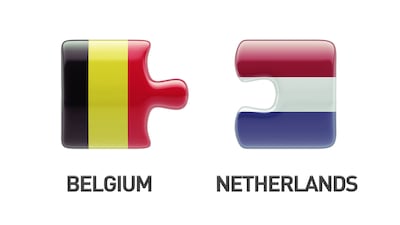Luxembourg
Country
Scotland’s health technology assessment body has agreed to reimburse Chiesi’s Elfabrio for Fabry disease, mirroring the decision from several other European countries – however, France turned down the rare disease drug, while Germany questioned its benefit.
The aim of the pilot project is to demonstrate that an electronic package leaflet has no negative effects on the proper use of medicinal products in a hospital setting, says the industry body VIG.
J&J says it has “exhausted all current viable avenues” to get its antidepressant nasal spray Spravato reimbursed on England’s National Health Service, after NICE decided against re-appraising the drug following numerous funding rejections.
Santhera Pharmaceuticals did not provide enough evidence to demonstrate that its Duchenne muscular dystrophy drug Agamree was a cost-effective use of resources, according to draft guidance from England’s health technology assessment body, NICE.
PDC Brands declines to provide support for nine challenged claims for Dr. Teal’s line of balms, lotions, oils, soaps, sprays and other topicals. It continues using those after halting use of 25 other similar claims challenged by P&G, marketer of melatonin-containing ZzzQuil.
The European Commission’s proposals for legislative reform in the pharmaceutical sector are welcome but must go further to address patient and societal needs, says a coalition of five EU countries dedicated to improving access to medicines.
Drugs for treating Duchenne muscular dystrophy and amyotrophic lateral sclerosis are among the products that the European cross-country coalition BeNeLuxA thinks would be suitable for a joint health technology evaluation.
An unusual managed access program for Zolgensma designed by Novartis and AveXis has been attacked on ethical grounds, with critics claiming it does not properly allot the gene therapy to patients most in need. The companies have rejected the criticism, saying the program is fair and equitable.
Luxembourg’s new regulator will work to attract investment and improve public health as well as tackle the growing problem of drug shortages.
The BeNeLuxAI initiative was among the many topics covered at the DIA Europe 2019 conference in Austria last week. The cross-country coalition has some new drugs in its sights for joint pricing talks and the conference was given an insight into the workings of the collaboration by a Belgian health department advisor close to the initiative.
In a BeNeLuxA first, Belgium and the Netherlands have reached an agreement with Biogen to reimburse rare disease treatment Spinraza after joint health technology assessment and pricing negotiations.
Ireland is set to join Belgium, the Netherlands, Luxembourg and Austria as part of the BeNeLuxA collaboration.











